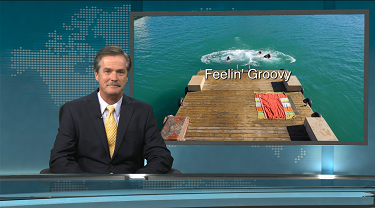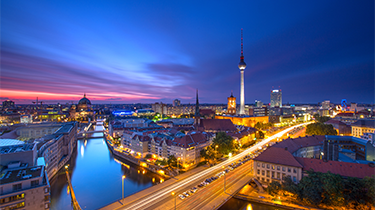Feelin’ Groovy
It's summer, and everyone's feeling good; will it last into the autumn?

Political discontent seems to be rife. Trust in established leaders and their parties is low, and change is a mantra with clout at polling booths everywhere. But the foul feelings go further, extending from politicians and government to big business, the ‘one per cent’, and post-war institutions in general. This low confidence in leadership is causing political upheaval, birthing a growing list of populist victors in some of the world’s leading nations, and challenging age-old economic constructs. Overall, it’s a pretty gloomy picture. But ask regular folk about the economy, and the answer is “Never better!” What’s up?
This answer is coming from first world surveys of consumer sentiment. Confidence has been at a cyclical high in the US for well over a year. It’s touching every region of the US, and every income category – it’s pervasive. In fact, you have to go back to the year 2000 to find a phase that is as feel-good. What’s remarkable is that today’s figures follow years of dumpy results, an alarmingly long drought of confidence that had some wondering if recovery was ever possible.
Is it just America? Hardly. If the US can be accused from time to time as being ‘glass-half-full’ types, then casting an eye on more staid Europe is a good check on things. Well the euphoria seems to have stretched across the Atlantic. Hard on the heels of higher New World sentiment, the ‘Old World’ caught on. There too, aggregate confidence is at cyclical highs, notwithstanding the turbulence in recent key elections. Even Italy is seeing a surge in consumer confidence, and as chaotic as things are in the UK, confidence levels are decent.
What’s driving this success? Generally, when households are upbeat it has a lot to do with the job market. With unemployment rates at cyclical lows, job prospects are high, incomes are rising, and for the first time in a long while, wage pressures are up. Central banks may worry at this point, but households love it, and they are reflecting this in their rosy views of the near-term future. Their smiles are not just about today, but about the tomorrow that faces both they and their loved ones.
What’s felt in the home is the same at work. Those who are paid to prepare for near-term business needs are also feeling upbeat about conditions. They have been that way for over two years now, and they don’t see an imminent end to the good times. It’s actually a great feeling in the mid-summer, when we’re all taking time off to relax a bit.
Sustaining this sentiment is critical. The world economy is at a delicate juncture, one that, if managed properly, could usher in years of future prosperity. We are currently experiencing the long-sought but elusive recovery from the Great Recession. The confidence we are now experiencing is essential to a triggering of business investment – getting it back to the higher pace that was our pre-recession ‘normal’.
Misinterpreting the situation could be fatal. Populist leaders could see confidence as an endorsement of their bravado, or worse yet, the consequence of their tough anti-establishment talk. If it truly has nothing to do with them, and is almost purely connected to the economic cycle, then job 1 is to sustain the economic momentum – not doing anything that might interrupt the prosperity for which we have all waited so long.
In this context, it’s shocking that our system of global trade is under attack. Openness has increased global economic potential beyond our collective imagination, and although imperfect, has spread prosperity everywhere in a comparatively short period of history. Protectionism is this prosperity’s arch enemy, promising much but instead producing job losses, higher prices and distorted and confused investment patterns. Anti-trade rancour has invited instability into an economic environment whose intensifying investment needs crave stability. Interrupt or abort the current investment wave, and we cut off the means of sustaining our current economic run. The stakes are very high.
The bottom line?
We’re all feeling pretty groovy – for now. Confidence is fickle, and can turn on a dime. Now that we have it, it’s critical that we figure out what’s driving it, and focus our attention on keeping that going. Anti-trade policy is doing the opposite.
















